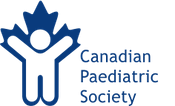For lifelong health, read, speak and sing to your baby from birth: Paediatricians
OTTAWA – Low literacy affects millions of Canadians, and is a higher predictor of lifelong health outcomes than both occupation and income. Every family, regardless of the parents’ comfort with reading, can help their baby develop early language skills.
That’s why the Canadian Paediatric Society wants physicians and nurses to talk to parents of young children about the benefits of reading, speaking, and singing every day, from birth.
Babies’ brains grow when an adult lovingly responds to their babbles, gestures, and cries. A caring and healthy relationship starts from birth, and these early interactions lead to language development and early literacy skills.
“Every baby benefits from reciprocal interactions with caring adults, and every family has the ability to help their baby thrive,” said Dr. Alyson Shaw, author of the updated CPS guidance document Read, Speak Sing: Promoting early literacy in the health care setting. “Families should see their health care provider as a partner in these early days, and physicians should routinely ask about and encourage activities that promote literacy.”
Books may be what comes to mind when ‘literacy’ is mentioned, but babies also benefit from singing and storytelling – particularly in cultures with strong oral traditions.
“Regardless of their own comfort with reading, parents and caregivers can help their children learn language by singing songs – which help them learn language structure and vocabulary – and by telling stories about their shared experiences throughout the day,” said Dr. Shaw, a paediatrician at CHEO in Ottawa.
The statement also urges physicians to connect families with community supports – a list of which can be found here.
To promote early language skills, families can:
- Read, speak and sing to children in the language they are most comfortable with;
- Snuggle up to read a story, which can enhance attention, engagement and connection;
- Talk about surroundings when out and about (e.g., “Do you see the brown dog?”);
- Invite children to imitate an action in a picture;
- Use repetition to help children learn, internalize, and re-create stories and songs.
- Use story time or songs to create routines at transitional times, such as bath time or bedtime
- Use story time to replace some screen time in the home
- Ask their child’s health care provider for more tips, and about literacy resources in the community
-30-
Related guidance from the CPS:
Read, speak, sing to your baby: How parents can promote literacy from birth
Relationships matter: How clinicians can promote positive parenting in the early years
Screen time and young children: Promoting health and development in a digital world
About the Canadian Paediatric Society
The Canadian Paediatric Society is a national advocacy association that promotes the health needs of children and youth. Founded in 1922, the CPS represents nearly 4,000 paediatricians, paediatric subspecialists and other child health professionals across Canada.
Last updated: Jan 26, 2022
